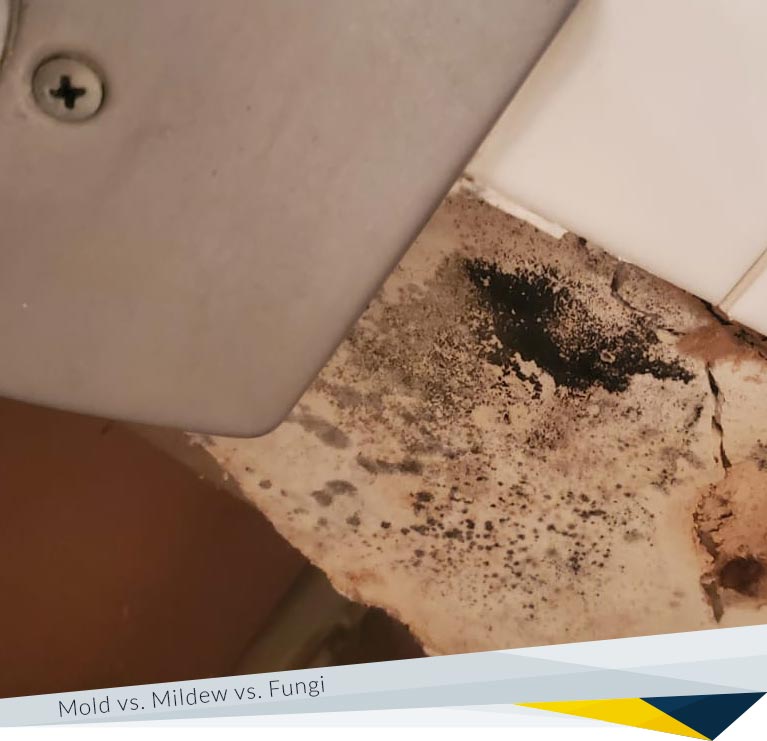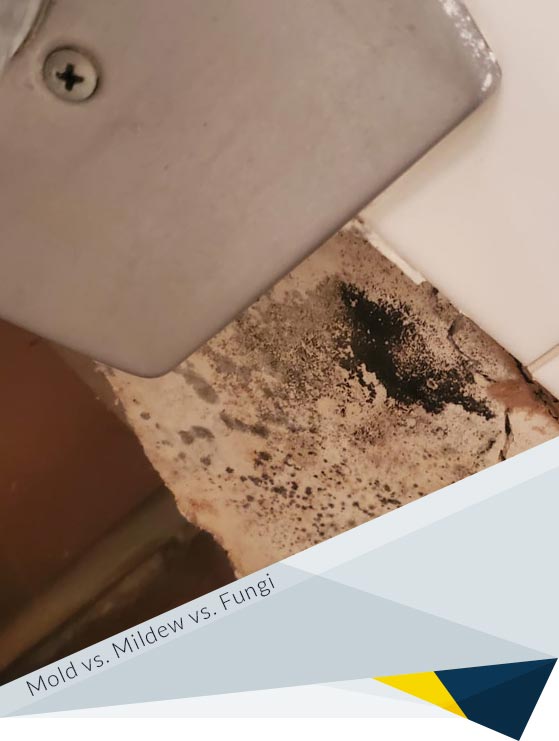
Are you facing mold and mildew symptoms in your home lately but are unsure about what it is? Mold, mildew, and fungus are terms often used interchangeably to describe this condition. It grows in moist and damp conditions. If there is excessive humidity and moisture, it flourishes and can result in a major mold infestation which will require you to hire a professional mold remediation service to get rid of it.
This blog will guide you through everything there is to know about mold vs fungi, mold vs mildew, and how to get rid of these. So let's get started.
Mold is a fungal growth that develops on different damp or rotting organic materials. Once there, as long as the conditions are right, it spreads. In places with a lot of dampness, such as near pipes, windows, bathrooms, and roof leaks, as well as in areas that have recently flooded, mold will grow. The growth of spores bearing secondary fungi-specific chemicals gives mold its dust-like, vibrant look. The fungus uses spores to propagate its organisms. However, not all fungi result in the growth of mold.

Mold may be categorized into three main types: toxigenic, which produces poisonous compounds that can be hazardous and even lethal; pathogenic, which affects people with acute illnesses; and allergenic, which causes allergies and asthma attacks. Cladosporium, Penicillium, and Aspergillus are the most prevalent indoor mold species.
Although mold and mildew are both fungi, they are typically different from each other. If you are wondering, "Which is worse, mold or mildew," the answer is mold. This is because, in contrast to mildew, some hazardous mold may seriously harm your and your family's health. The hazard to people from black mold is significant.
If you are concerned, is mold a fungus? Yes, it is. Both fungus and mold are members of the fungal kingdom. However, they share some similarities and dissimilarities, which are given below.
Mold feeds on decomposing organic waste. Fungi and mold are both members of the same kingdom. Homeowners often wonder is mold a type of fungus? Mold is a type of fungus and have spores that they use to proliferate, much like other fungi do. They are both decomposers.
The primary distinction between mold and fungi is that mold is a multicellular, filamentous fungus, while other types of fungi can be either unicellular or multicellular organisms with a chitin cell wall.
The common question that one may have when they witness a mold infestation is whether mold is fungi or bacteria. As discussed above, mold is fungi, not bacteria. Nevertheless, it can cause health problems just like bacteria can.
Mildew is another type of fungus. Mold and mildew are often confused for the same thing, but when compared to mold, a similarly related fungus, mildew may be identified mainly through its color. If you look at pictures of mildew vs mold online, you will get a better idea. Moisture and humidity lead to the growth of mildew on any organic material. Mildew is frequently linked to wet clothing, fibers, leather products, and many plant diseases.
Mildew may grow during the humid colder months when the heat is turned up high and the doors and windows are closed. As the weather warms up further, the resulting humidity can accelerate the process of mildew growth.
The two forms of mildew that are most well-recognized are powdery mildew and downy mildew. Downy often starts as yellow dots that eventually turn brown. Potatoes, grapes, and other agricultural goods are where it is most commonly found. Powdery mildew starts as gray or white splotches, but as it spreads, it becomes yellowish-brown or black. The majority of blooming plants have it.
Mold vs mildew is a common discussion. Both terms are used interchangeably yet have significant differences. A specific type of mold or fungus is referred to as mildew. The general word "mildew" is frequently used to describe mold growth, which typically has a uniform growth behavior. On the other hand, mold can include any type of microfungus that forms multicellular filaments known as hyphae as it grows.
The distinctive difference between mold and mildew on walls is in the appearance. Mold often appears slimy or fuzzy, has a thickened appearance, and can be any hue, particularly dark green and black. In comparison, mildew develops on surfaces, is powdery, seems white or gray, and is usually flat.
The difference between mold and mildew that is worth noting is that mildew is less penetrating and bothersome. Mold is frequently a component of a bigger outbreak that may require expert remediation, whereas mildew is a superficial fungus that is readily cured. Mold takes its toll on the cellular integrity of its host by penetrating it, as opposed to growing on its host's exterior like mildew.
While mildew can also lead to minor respiratory issues like coughing fits, mildew is less dangerous. Depending on the health of the person it comes into touch with, a major mold infestation can result in a variety of problems that range in seriousness.
The class of organisms that produce spores and consume organic substances is known as fungi. Fungi can be incredibly sophisticated multicellular creatures or single-celled critters. Although they may exist in almost any habitat, most do so on land, mostly in the soil. Mold, mildew, yeast, and a variety of other creatures are examples of fungi. You must have often come across slime mold and may be wondering is slime mold fungi or not. The answer is no; slime mold does not belong to the fungi group, although they resemble fungi.
Testing for mold and mildew is required to evaluate the extent of the issue and choose the most effective removal strategy. The best idea is to hire the most qualified professionals to execute it.
Samples are taken to begin the testing procedure. To collect samples, a variety of techniques, like air sampling and swab sampling, are used depending on the circumstance. Once the infected sections have been removed, a lab will extensively inspect them using advanced mold testing tools and microscopes. Mold specialists can determine the difference between mold and mildew, the number of spores, and the degree of the issue owing to their extensive knowledge and training. They will promptly make the decision on the best line of action to recover your property.
Your health and your property might be negatively impacted by mold and mildew. Anywhere there is a lot of moisture or humidity, mold and mildew can grow. Identifying the locations where mold and mildew are present is the first step in getting rid of mold. It will need to be cleaned after you have located the area where it is developing. There are different methods of mold and mildew removal. The visible mildew may be scrubbed with a brush and treated with hydrogen peroxide. But it only works in comparatively tiny spaces, and in case of bigger mold infestation, it may not work. You may also think about covering the mold with paint. To destroy the mold, you can also employ bleach, baking soda, disinfectant, or other chemicals; however, doing so may harm your health.
Each approach effectively cleans the mold and mildew in its particular manner, but they do not assist you in preventing mold growth in your home in the future since the mold may reappear over time. It is advised to seek professional assistance for mold and mildew removal and use mold remediation services if you want a powerful remedy to clean and prevent future mold infestation.
Hiring a licensed mold expert firm is the best way to get rid of mold and mildew since they are equipped with the tools necessary for thorough remediation. Their crew will start with mold and mildew testing to identify yeast mold fungus, bathroom mold and mildew, black mold vs mildew, and so on, and come up with the most effective solution.
While mildew is relatively treatable and cleanable, it may be dangerous to your health and home if it develops into a more extensive mold infestation. If you see any mold development, you should get professional help right away to prevent more mold impact and exposure.
If you are concerned about mold spreading in your home and require a long-term solution, you can get a free consultation to get the most effective solution for your problem. FDP Mold Remediation can help if you live in the District of Columbia region, Virginia, Maryland, New Jersey, Florida, NYC area, or Texas. Our experts will analyze, evaluate, and provide you with mold remediation services, such as inspection, testing, consultation, and a mold and mildew removal strategy, to ensure that your home is clean and safe from mold for the foreseeable future.
The experts on our teams are all qualified, have years of experience in the field, and work with top-notch equipment to ensure you receive the best services possible. When you pick FDP Mold Remediation, you can anticipate a rapid and effective solution to your mold problems.



